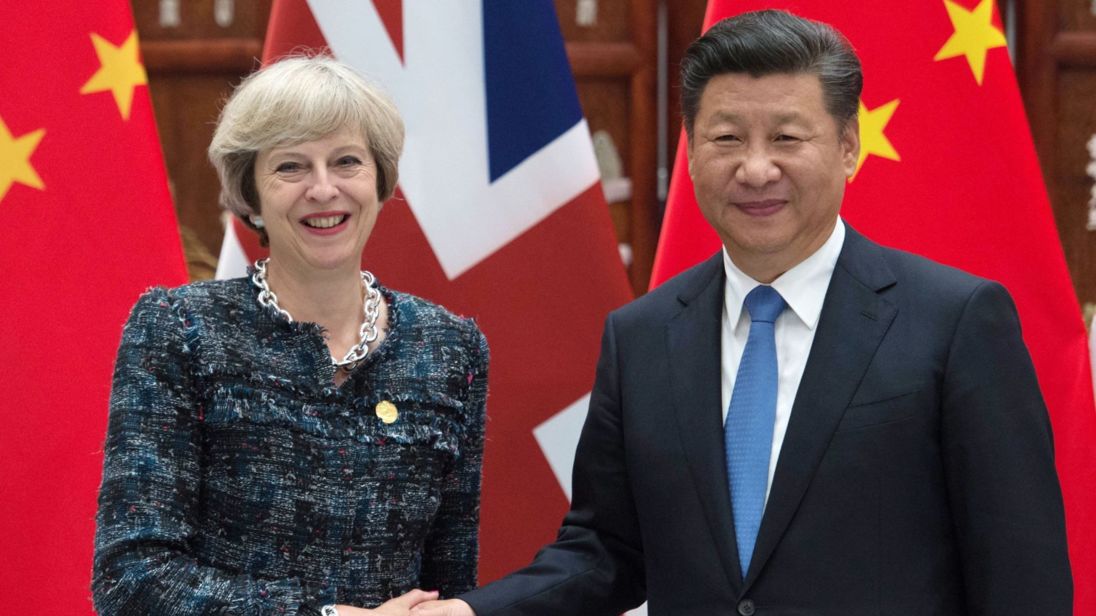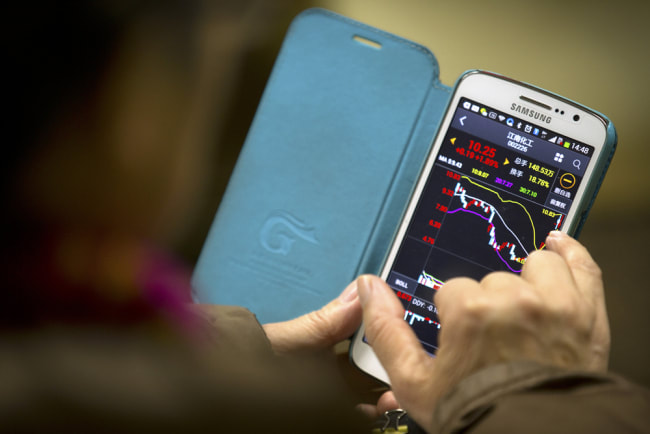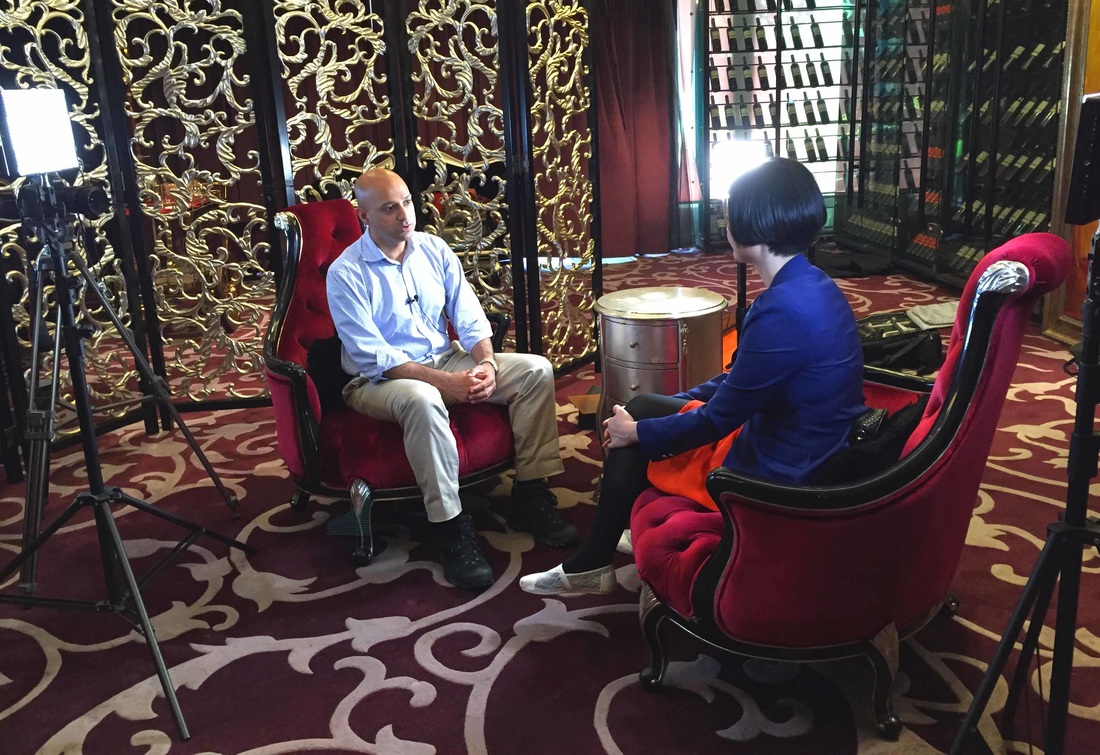|
With the British Prime Minister Theresa May, or ‘Auntie May’ as she is affectionately know by the millions of Chinese people, completing a highly productive three-day marathon visit to the country, one can hope that it can only help to build better relationships and boost trade for the Chinese and British economies, especially as we are entering the post-Brexit era.
May's trip follows French President Emmanuel Macron's state visit to China earlier in January. This perfectly illustrates that both sides are eager to improve their ties in a time of rising global challenges and uncertainties. May was accompanied by her husband Philip, and leaders from 50 British businesses and commercial organisations. She came here to seek China as a major economic partner for post-Brexit Britain, and looked to improve on the “Golden Era” between the two countries. Premier Li said this year marks China’s 40th anniversary of reform and opening-up, in a prior report to the 19th CPC National Congress, Beijing said it will continue to open markets. In a press conference after their talks on the first day, Li talked about the efforts that China and the UK will make in boosting economic globalisation and fighting against protectionism. Li and May also witnessed the signing of agreements covering trade and investment, financial services, scientific innovation, environmental protection, education and bio-science. At her press conference with Li, May said a “significant number of major new commercial deals” were agreed during her visit, totalling around US$13 billion in value. In turn, Li made encouraging sounds about a future UK trade deal as well as opening Chinese markets more generally to UK agricultural products. “The two-way opening up between China and the UK will go even further and China will open even wider to the UK,” he said. “In line with our agreement, China will expand openness to British products including agricultural products. China will import British products that are needed in the Chinese market.” But how effective are these words and how much do they translate into actions? Well, according to figures, even after this trip, there will be a lot of work to be done by Prime Minister May and the rest of the British government. Britain, the world's sixth largest economy, sends only a minute 3% of its exports of goods and services to China. Meanwhile, just 7% of its imports are from China - with the majority of those coming from Hong Kong and the Guangdong region. Some of the success stories of this trip included announcements that bans on the exports of British beef would be lifted for the first time in decades, the extension of a Maths teacher exchange programme and a campaign to promote English language learning in China. The education deals are worth more than US$784 million and are claimed to create over 800 jobs in Britain. LEARNING ENGLISH NOTHING NEW While these trade deals sound great, it goes without saying that there is much more work needed to be done by Britain. You may think that something like starting an English language learning campaign is a great initiative for Britain because it is the home of the English language, but this is going to be a big challenge. Why? Because the English language market in China is highly competitive and many companies are competing for the same space. Another key factor is that American English is more popular in China than British English because Chinese people are exposed to a lot of American influence through movies and television programs. Go down any street in China and Millennials would know US series such as Friends, The Big Bang Theory, Gossip Girl, or This is Us, but they would have never heard about household British programs such as Coronation Street, Only Fools and Horses, Keeping Up Appearances or EastEnders. It goes without saying that the American culture is part and parcel of the social fabric of the youth in China through contemporary TV shows. Since China opened up its economy in the 1980’s, American TV shows have been a way for Chinese people to practice English, while also learning about pop culture and getting entertained at the same time. When Friends aired in the 1990’s and 2000’s, it captivated the world, including Chinese audiences, with its charismatic yet accessible depiction of life for young, middle-class, upcoming Americans. This ultimately ushered in a new era with English learners who wanted to learn cultural alongside language. Whereas British English is seen by the youth in China to come across as too formal, not so cool and slightly old fashioned - though that may appeal to those who want to apply for British universities. Mrs May said new agreements signed on her trip would "enable more children and more young people than ever to share their ideas about our two great nations", helping to ensure that "our golden era of co-operation will endure for generations to come". However, the issue here is that this is just a small investment into a country such as China where the value of the English-training market is now about US$4.5 billion and some analysts predict that this market will continue to grow at a rate of around 15% over the course of the next few years. A solid proof of this growth is the company Wall Street English, which until recently was owned by the British company Pearson, and is one of the largest private language institutions in China, is currently employing a US$16 million refurbishment plan, with new centres opening in many cities across China. I know this market because I used to work for Wall Street English and Disney English as a director and from my prospective, what the British government is doing is good but it seems a bit late that they are investing into this initiative. Wall Street English already has over 70,000 students in China, which contributes to 30% of its global business. Another business leader on this trip signed a contract for a British company that can provide quality baby milk powder, because Chinese parents trust foreign-made infant milk powder as it is considered safer and of a better quality. Another bit of proof that attempts to woo Chinese investment are reined in by the need to keep America and Europe on side. But selling milk powder is also nothing new- many English-speaking countries are doing this. Australia and New Zealand are the leaders when it comes to selling baby milk powder to China. UNCERTAIN FUTURE WITH BREXIT The total annual value of UK-China trade is about US$84 billion, much less than the US$211 billion in trade between Germany and China. One thing that people would have noticed is that while countries like Germany sell China products such as cars made by BMW and Mercedes, and electronic products made by Bosch and AEG, and the US sells planes made by Boeing or entertainment by Walt Disney, it looks like we can only sell baby milk powder, university education, and English language classes - but that may not be the case. I totally agree that education is one the greatest treasures of Britain, but what is really required for Britain to be proud of is industrialisation and that is missing because sadly Britain is not the almighty great British Empire that it once was in the post-war industrialisation era. In actual fact, contrary to popular belief, Britain's main exports to China are not education and baby milk powder but cars (Aston Martin and Rolls Royce), petroleum products and tourism services, while it mostly imports Chinese manufactured goods, telecommunications equipment, clothing and electronics. Prime Minister May sidestepped a proposed agreement for a formal endorsement of China’s US$900 billion Silk Road strategy and no memorandum was signed. This suggests that Britain is still thinking about the huge infrastructure project and it is still in its infancy stages. A UK government official said. “They both spoke positively about the potential impacts it could have. But it’s important it’s implemented in the right way. They are going to carry on talking.” Philip Hammond, the British Chancellor of the Exchequer, described Britain as "a natural partner" in the initiative while attending the Belt and Road Forum for International Cooperation in Beijing last year. Today, with Britain heading into an uncertain future with Brexit and with the constant threat of terrorism, the country is sadly not really a hot bed for innovation and success that it once was. Yes, there are great strides being made in oil and gas and in the finance sector, both of which were represented during this trip. However, what about the digital revolution and how can China work with Britain for that and vice-versa? NEED TO FOCUS ON BRITISH DESIGN AND TECHNOLOGY I do believe that May should strongly promote British design, technology, high-tech engineering, and environmental services. In China, Britain could be doing more for promoting British goods. It was very sad to see that Marks and Spencer and Tesco were not so successful in China, while the likes of Walmart and Carrefour are thriving there. Its things like this that make me feel that either Britain is behind what other countries are doing or is playing catch-up when it comes to trade with China. The world is going through the fourth industrialisation and as China is investing heavily in Artificial Intelligence (AI), Virtual Reality (VR), e-commerce, wind energy, Machine Learning and Big Data, I believe that these are the key areas in which Britain should be focusing on because this is where the future is heading. People need to be open and embrace this change. While in China people are very mobile friendly and open for change but sadly in the UK this is not the case. If Britain really wants to build better relations with China, then why not invest in educating British people how to learn Chinese and how to use WeChat or use AliPay? Education about China in the UK is lacking. That’s what is required. Do you see British people scrambling to buy the latest products on Alibaba.com, the online and mobile commerce giant? No. As one of the very few Brits who has had the privilege of working for Alibaba.com, one of the most frustrating things that I find is that most people would think Alibaba is the name of their local kebab shop. In January 2018, Alibaba became the second Asian company to break the US$500 billion valuation mark. Its online sales and profits have surpassed all US retailers, including Walmart, Amazon and eBay, combined since 2015. WECHAT IS IMPORTANT Using technology to learn about China is the key to success. While there are nearly a billion users globally of the WeChat app, hardly anyone in the UK has probably heard of it. There are no restrictions to British people to use this app. All you need to do is download it for free and use it. I wonder how many of the 50 business leaders know how to use it or know how beneficial this app can be for their businesses? To be effective in doing business with China you have to use WeChat and be able to really understand the culture and the ways of communicating effectively. The vast majority of the people in the UK use Facebook Messenger and WhatsApp, and except for a handful of people like me who have lived and worked in China, my educational guess is that if it is used in the UK, it will be by the Chinese or the Asian community. In that sense, I do feel that our tiny island-nation, which is dependent on imports from the outside world, has to make deals with countries who would be willing to pump money into our economy. In conclusion, it is fair to acknowledge that despite the productive meetings, it is early to say what impact the trip will have in the coming years. The China-Britain relationship has always been considered an exemplar for China-West ties in terms of putting aside differences and seeking the largest possible common ground. Both China and the UK now stand at the entrance to a new era. This is a strong fact that makes me feel proud to be British as well as value Chinese culture. I hope we'll be able to attract further investment and showcase what Britain is really good at. This article was first published on ChinaPlus, part of the China Radio International (CRI). You can click here to read the original piece. Opinion article on China Plus News: The Financial Research Industry Must Adapt to Disruption12/18/2017
With the Chinese Premier Li Keqiang meeting with the British Chancellor of the Exchequer Philip Hammond earlier this week in Beijing, and calling on the two sides to make use of London's advantage as a global financial centre to enhance financial cooperation, it is vitally important for British and Chinese companies, especially those in the financial research industry (such as Third Bridge) to adapt to digital disruption. I take a look at the reasons why.
中国国务院总理李克强本周早些时候在北京会见英国财政大臣哈蒙德,呼吁双方利用伦敦作为全球金融中心的优势加强金融合作,这对于中英企业,尤其是金融研究行业(如高临)适应数字化颠覆至关重要。我来剖析其中的原因。 I have also published a slightly modified version on my LinkedIn account. |
Get in Touch:LIFE MATTERSHere I share my thoughts
and experiences during my travels, and how some things have affected my life as an expat and world traveller. Travelling is about capturing that moment in life. Every word, view and opinion on this page is that of Navjot Singh - except where indicated. The most recent is at the top. Scroll down to read the archive. Or search using CTRL+F (COMMAND + F) and enter a keyword to search the page. Just some of the stories you never heard before. The NAVJOT-SINGH.COM web blog is separate to this web site....Click blog, which may not be visible in some countries due to local firewall restrictions, so in those cases this weblog may be read. The weblog also includes some of my press trip reports- most of which are not published on the official blog because of copyright issues. The weblog also contains articles that may be associated directly with a PR trip for a country, airline or a hotel. These are PR reviews done in relations with various companies. If you are an investor or a trend watcher then you may find this website useful as investing has a lot to do with personal observations and finding the ideal trend or next big thing. The average human on the street frequently knows far more about the state of the economy than politicians, university professors, subject matter experts, and financial analysts who seldom travel, or if they do so, only from one hotel to another hotel! The pulse and vibrancy of an economy is nowhere more visible than on a country's streets. All photos and words are © Navjot Singh unless stated. Photos taken by others or by agencies are appropriately copyrighted under the respective name. No photo or word/s may be taken without the prior written permission by the author (i.e. Navjot Singh). All Rights Reserved. Archives
April 2024
Categories
All
|


 RSS Feed
RSS Feed







